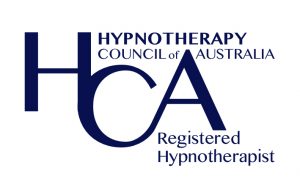
In the bustling world of business, confidence is often touted as the cornerstone of success. It’s the trait that enables leaders to inspire, negotiators to close deals, and entrepreneurs to take bold risks. Yet, despite their skills, experience, and accomplishments, many professionals grapple with a persistent lack of confidence. This phenomenon isn’t just a personal hurdle — it can have profound implications for career development, workplace dynamics and overall job satisfaction.
Professional insecurity can stem from a variety of sources, often rooted in both personal and environmental factors:
Imposter Syndrome
One of the most common causes of professional insecurity is imposter syndrome—a psychological pattern where individuals doubt their accomplishments and fear being exposed as a “fraud”. Despite evidence of their competence, professionals with imposter syndrome often attribute their success to luck rather than their skills, leading to a persistent lack of confidence.
High-Pressure Environments
In highly competitive industries, the constant pressure to perform can erode self-esteem. Professionals may feel that they are only as good as their last success, leading to anxiety and self-doubt.
Perfectionism
Perfectionists often set impossibly high standards for themselves, leading to chronic dissatisfaction with their work. Even minor mistakes can trigger a cascade of self-criticism, making it difficult to maintain confidence.
Negative Feedback and Criticism
While constructive feedback is essential for growth, repeated exposure to harsh criticism can chip away at a professional’s self-assurance. This is especially true in environments where negative feedback is not balanced with positive reinforcement.
Cultural and Gender Dynamics
In some cases, societal and cultural factors contribute to professional insecurity. For example, women and minority groups often face additional barriers in the workplace, including bias and discrimination, which can undermine confidence.
A lack of confidence can have wide-ranging effects on a professional’s career:
Stunted Career Growth
Professionals who lack confidence may be less likely to advocate for themselves, whether it’s negotiating for a raise, applying for a promotion, or taking on leadership roles. This can result in stagnation, as opportunities for advancement are missed.
Reduced Job Satisfaction
Insecurity can lead to chronic stress and burnout, as individuals feel they must constantly prove their worth. This can diminish overall job satisfaction, making work feel like a never-ending struggle rather than a fulfilling endeavor.
Hesitance to Take Risks
Innovation and progress often require taking risks, but insecurity can cause professionals to shy away from bold decisions. This can hinder creativity and limit the potential for breakthrough achievements.
Strained Workplace Relationships
A lack of confidence can also affect interpersonal dynamics at work. Professionals may struggle to assert themselves in meetings, collaborate effectively with colleagues, or lead teams with authority.
Strategies to Build Confidence in the Workplace
While overcoming professional insecurity is no small feat, there are several strategies that can help build confidence:
Acknowledge and Challenge Negative Thoughts
Recognising and addressing self-critical thoughts is the first step toward building confidence. Cognitive-behavioral techniques, such as reframing negative thoughts and practicing self-compassion, can be particularly effective.
Celebrate Small Wins
Instead of focusing solely on long-term goals, professionals should take time to celebrate small victories along the way. Acknowledging progress, no matter how incremental, can reinforce a sense of accomplishment and build confidence.
Seek Constructive Feedback
While negative feedback can be damaging, constructive criticism is invaluable for growth. Professionals should seek out mentors and peers who can provide balanced, actionable feedback that highlights both strengths and areas for improvement.
Set Realistic Goals
Perfectionists, in particular, can benefit from setting realistic, attainable goals. By breaking large projects into manageable tasks and focusing on incremental progress, professionals can reduce the pressure to be perfect and build confidence through achievement.
Invest in Professional Development
Continued learning and skill development can bolster confidence by ensuring that professionals feel equipped to meet the demands of their roles. This might include formal education, workshops, or even seeking out new challenges that push the boundaries of your comfort zone.


